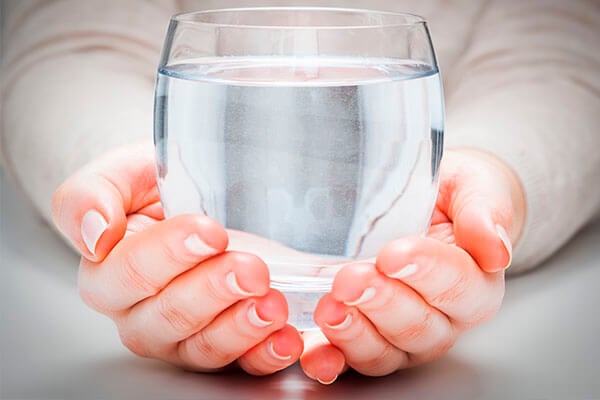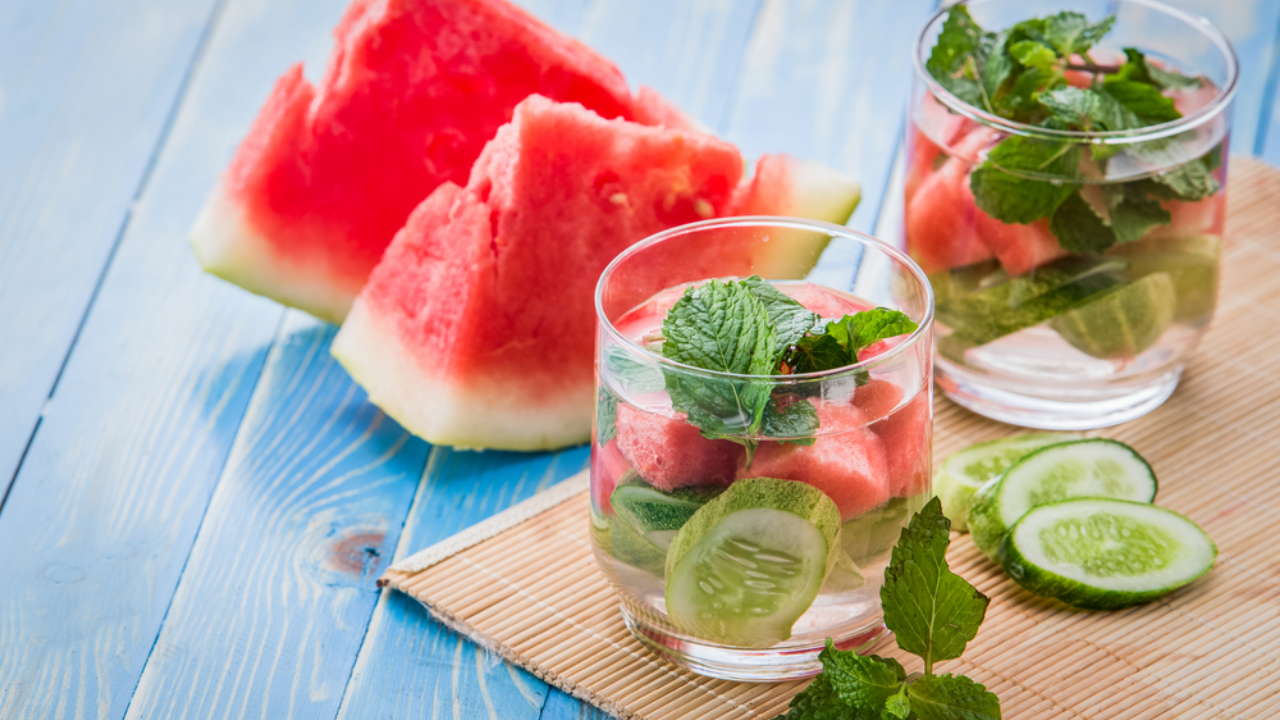Can drinking water alone help you lose weight? Learn how drinking water can help you lose or maintain weight.
Water is an important nutrient for keeping the body healthy. Water makes up 60% of the body and is responsible for everything from eliminating body waste to regulating body temperature. The body is heavily dependent on water, as all cells, organs, and body fluids (such as blood) in the human body contain some level of water.
So, in addition to water helping your body systems function (the biggest benefit of staying hydrated), drinking water can also help you achieve a healthy weight. Drinking less water contributes to an increased risk of obesity, kidney stones, cancer, etc.
Here's what you need to know about how drinking water can help you lose weight or maintain it.
1. What do experts say about hydration and weight loss?

Drinking water is only part of weight loss.
Dr. Albert Do (Yale Medicine in New Haven, USA) said that there is some scientific evidence to support drinking water as a tool for weight loss through a number of mechanisms. Drinking water directly or indirectly leads to weight loss.
Cynthia Sass, a Los Angeles-based sports dietitian, points out that water is just one part of weight loss and should not be considered the only weight loss solution. Cynthia Sass explains that water is necessary for every process in the body, including healthy circulation, digestion, and waste removal. Therefore, drinking enough water will benefit your health in other ways.
2. Drinking water before meals can help you eat less
One study found that drinking water before meals naturally reduces calorie intake, which may aid in healthy weight management. When people drank 1/4 cup of water before meals, they ate less than those who drank the same amount of water after meals or did not drink anything at all.
Drinking water before or with food can lead to reduced food intake and therefore weight loss. Drinking water 30 minutes to 1 hour before eating can allow hormonal signals of satiety time to take effect and lead to less hunger at mealtime.
3. Increasing water intake helps speed up metabolism
One review study concluded that increasing water intake not only promotes weight loss through “food resorption,” but also helps speed up metabolism by increasing lipolysis (the breakdown of fats and other lipids by hydrolysis to release fatty acids).
Research shows that water has the ability to help regulate metabolism, and while the effects may be mild, it can have a larger impact over time, adds Cynthia Sass.
4. How much water and when to drink to lose weight?
Dr. Albert Do says there is no specific amount of water recommended for weight loss because the relationship between the two has not been scientifically proven. But to maintain hydration balance, he recommends drinking 15.5 cups (3.7 liters) for men and 11.5 cups (2.7 liters) for women, including water and fluids from food.
As for when to drink water for maximum weight loss, before meals can help reduce appetite and prevent overeating. And since water can help digestion, consider drinking some after meals. However, you should spread your water intake throughout the day.
Additionally, some drinks contain chemicals, such as caffeine, which stimulate urine production, in other words, they have the opposite effect, dehydrating. While there is no need to switch to decaffeinated for the purpose of rehydration, it is worth trying to recognize when you should consider drinking more water, for example in cases of exposure to hot weather or exertion such as exercise or physical activity that requires hydration to meet the body's needs.
5. How to increase water intake?

Flavors can be added to water to make it easier to drink.
As with other healthy lifestyle behaviors, incorporating water intake into your daily routine can help you stick to the practice, suggests Dr. Albert Do. This could mean linking water intake to existing habits, such as drinking a glass of water after brushing your teeth at night, or setting reminders to drink water.
Another approach might be to add water-containing foods to your diet. Many fruits and vegetables with high water content, such as watermelon, grapefruit, and spinach, are water-rich foods.
If you are not a fan of plain water, you can add flavors to your water that are good for weight loss, such as fresh mint, sliced cucumber, fresh ginger, or some low-sugar seasonal fruit.
6. Should you fast and only drink water to lose weight?
Nutritionists and dietitians do not advocate water fasting.
Keep in mind that temporary weight loss can result from most liquid fasting and cleansing regimens, including water fasting. But there is little to no scientific evidence for long-term weight loss with this type of eating plan. While temporary weight loss may be the only potential “pro” for water fasting, it is not a safe and sustainable way to lose weight because it can cause nutritional deficiencies, fainting, brain fog, fatigue, and in women, changes in hormone levels.
Water is an important component of overall health. While drinking water can help achieve weight loss goals indirectly by reducing calorie intake or increasing metabolic rate, drinking water alone cannot cause weight loss.
Source: https://giadinh.suckhoedoisong.vn/nen-uong-bao-nhieu-nuoc-va-khi-nao-de-giam-can-172241115094138334.htm


![[Photo] Prime Minister Pham Minh Chinh chairs a meeting of the Government Standing Committee on overcoming the consequences of natural disasters after storm No. 11](https://vphoto.vietnam.vn/thumb/1200x675/vietnam/resource/IMAGE/2025/10/09/1759997894015_dsc-0591-jpg.webp)

![[Photo] Prime Minister Pham Minh Chinh chairs the Conference to deploy the National Target Program on Drug Prevention and Control until 2030](https://vphoto.vietnam.vn/thumb/1200x675/vietnam/resource/IMAGE/2025/10/09/1759990393779_dsc-0495-jpg.webp)
























































































Comment (0)